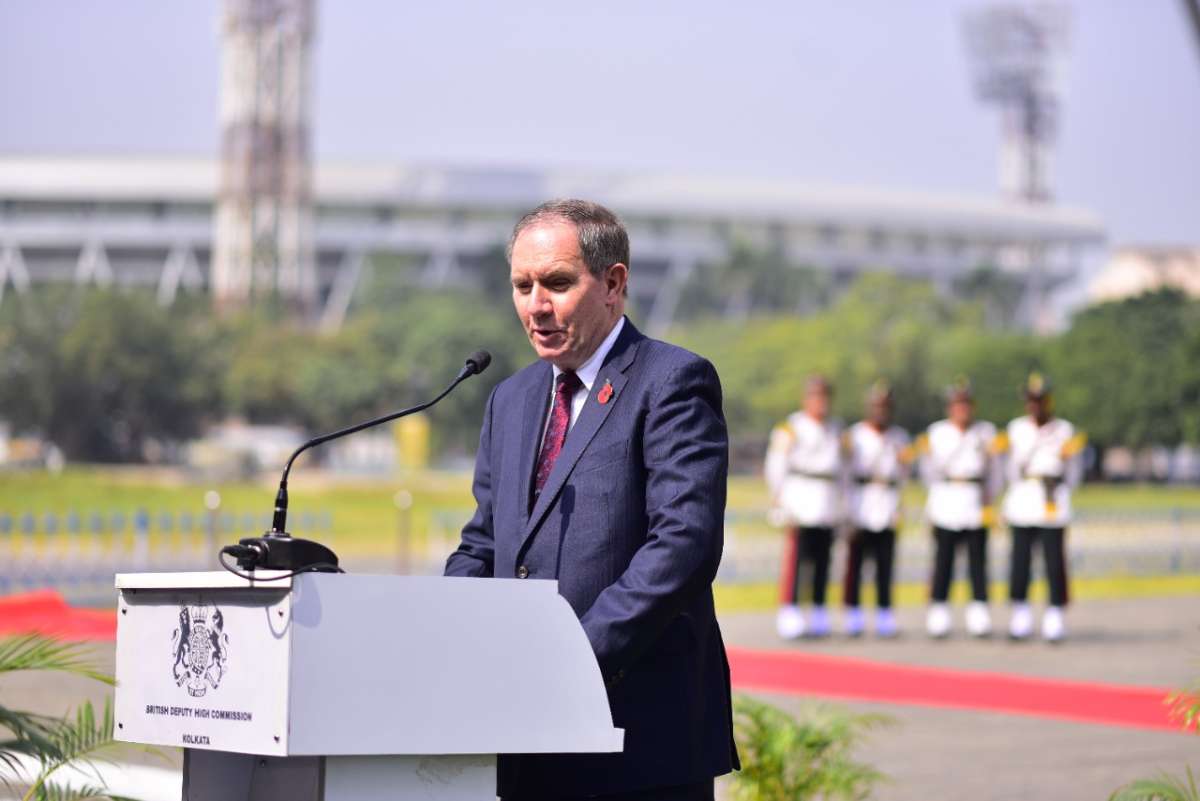However, he asserted that he will be here at least until next monsoon and would try his best visit the remaining areas…reports Asian Lite News
“We never do things to people, we do things with people,” emphasised Nick Low, British Deputy High Commissioner (Counsel General) Kolkata, during his recent visit to Nagaland, while implying that the United Kingdom is keen and assessing priorities to work with authorities of the State.
‘I would never arrive and say this is what we’re going to do for you in health or education or infrastructure etc. Such a scenario would be completely improper and very scary to do,’ he asserted, when queried on whether any areas have been identified for possible intervention.
Instead, what really needs discussing are particular priority areas of the concerned State, said Low, who heads the British Deputy High Commission Kolkata, representing the UK Government in 12 States and 1 Union Territory in East India as well as Bhutan.
Low, who assumed charge of the Kolkata Commission in October 2019, admitted that due to the onset of COVID-19 from 2020-21 and a situation that was ‘not business as usual’ even during the first 3-4 months of 2022, he could visit only 8 out of the 13 areas under Kolkata jurisdiction till now.
However, he asserted that he will be here at least until next monsoon and would try his best visit the remaining areas.
“I am really delighted to be here and has heard lot about Nagaland,” Low said, while noting that he wanted to the visit to coincide with a ‘very special day’ -11th Hour of the 11th Day of the 11th Month or Remembrance Day.
Accordingly, he laid a wreath at the Kohima War Cemetery for the ‘Fallen,’ honouring the pledge to a group of former servicemen (Invictus) –who fought at the Battle of Kohima 75 years ago, and could not come to its anniversary through the Royal British Legion, due to the COVID-19.
However, Low stressed that it was not the sole reason. ‘Obviously, I want to find out what makes Nagaland tick and what areas we could work on.’
As noted, Low said that ‘we do things with people’ by discussing particular priority areas of the concerned State. However, he was keen on health care.
‘We can assess particular priorities at the moment and ascertain if that’s an area where we’ve got the necessary expertise to assist and that’s been a very productive area,’ Low stated, citing success stories in West Bengal and Jharkhand.
The intervention can range from specific clinical illnesses, communicable and non-communicable disease, structure of healthcare delivery, medical education and so on, he added.
“We will try and source peers from the UK and get it done on an expert-to-expert level so that healthcare professionals in Nagaland talking to professionals in the UK. We can replicate that as well in other sectors,” he added.
Meanwhile, Low stated that scope for boosting the visitor economy or what economists term as ‘tourism’ is immense.
This is a place of unimaginable beauties, he noted, adding that Nagaland and the North-East should be able to see larger numbers of foreign visitors “without spoiling the character” of the region.
Tourism is a big industry employing millions of people in my own country. We reckon the tourism will account for around about 10% of the UK’s GDP by 2025, Low opined.
“Just as education breeds understanding between people in different countries, colours, ethnicities and faith, tourism does the same thing,” he added.
On being queried whether Nagaland now is conducive for investment from outside particularly the UK given the State’s chequered political history, Low was affirmative.

